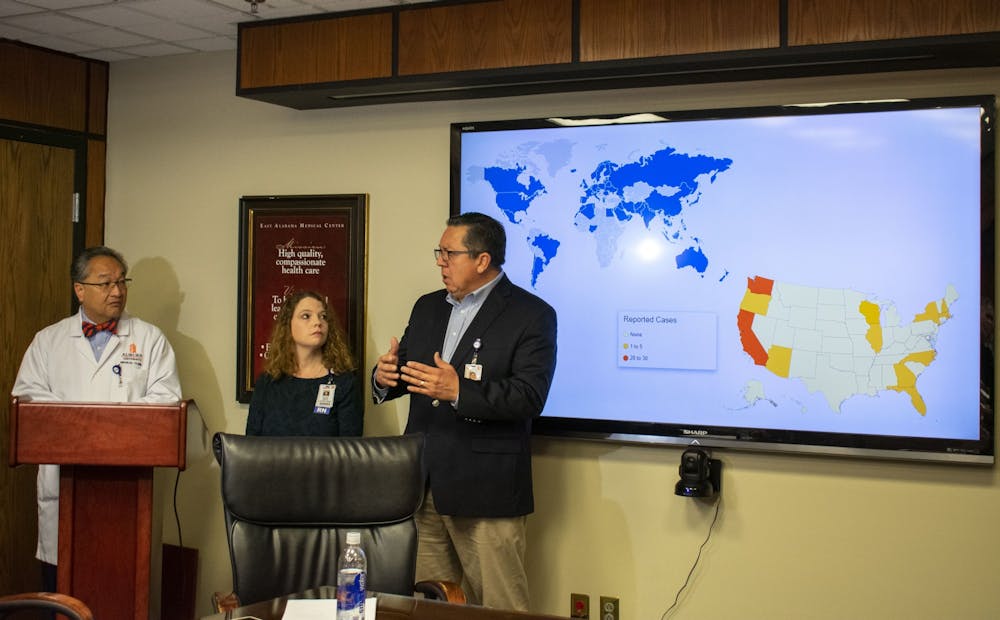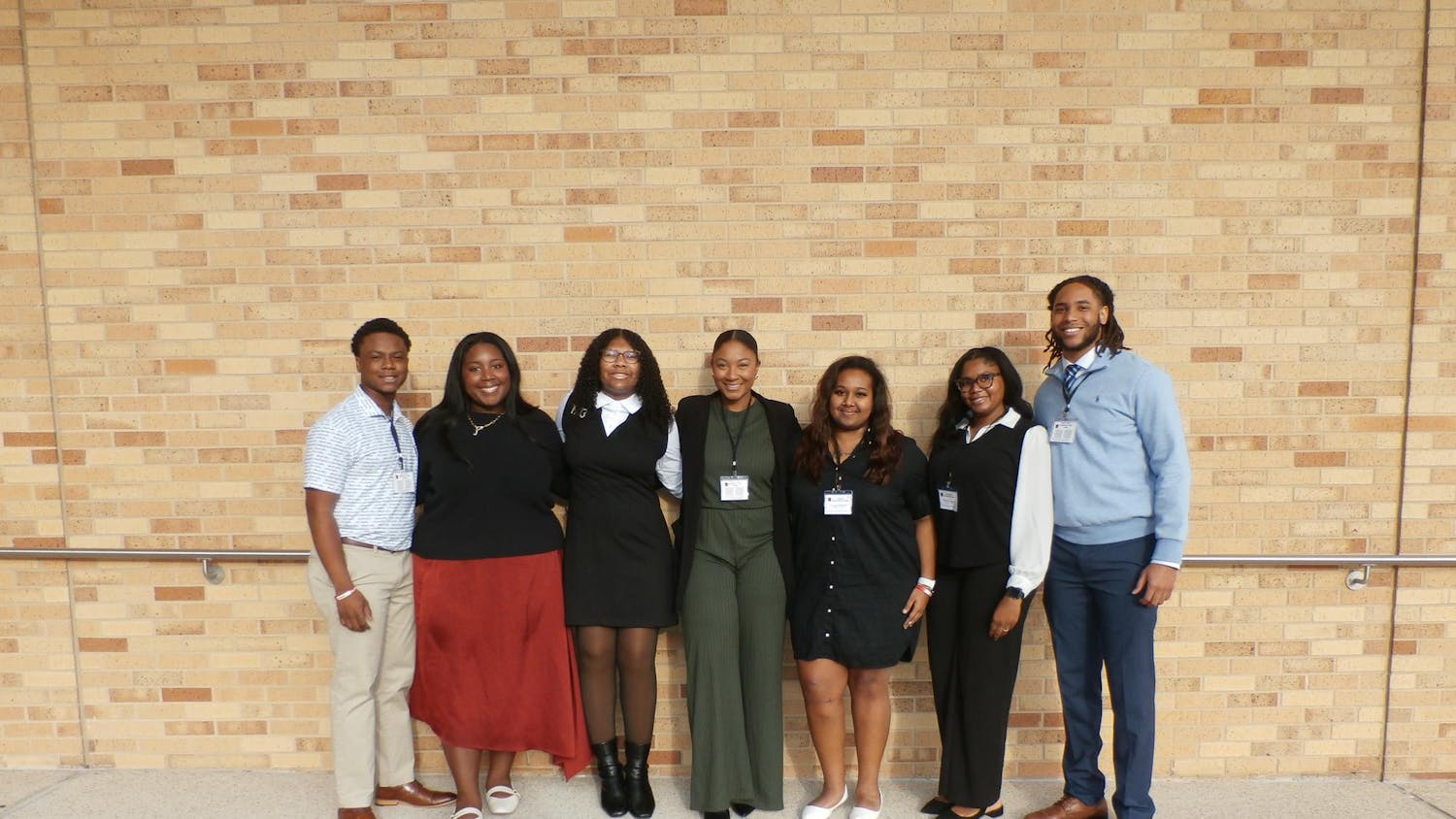Officials from East Alabama Medical Center hosted a press conference Thursday morning to discuss how they're working with the cities of Auburn and Opelika and with Auburn University to prepare for a potential spread of COVID-19.
City officials from the City of Auburn, the City of Opelka and Auburn University hospital staff have been trained on virus screening and personal protective equipment use.
At the press conference, officials from EAMC, the University and cities said they're meeting daily.
“Our number-one priority is to make sure that our community is aware in what to do if they feel like … they may have symptoms that need medical advice or treatment,” said Brooke Bailey, infection prevention director at EAMC.
The hospital set up a hotline for potential patients. People need to call (334)-528-7425 before visiting any doctor’s office or emergency room if they experience flu-like symptoms, Bailey said.
Preventing the spread of infections is both the responsibility of the hospital and the community, said Dr. Ricardo Maldonado, infectious disease physician at EAMC. COVID-19 spreads rapidly and can enter the community at any time, Maldonado said.
“We shouldn’t be surprised that we could see a case of COVID-19 in our community,” Maldonado said.
COVID-19 is a new virus belonging to the coronavirus family, according to the Center for Disease Control. It was first discovered in Wuhan, China, and was first reported in the U.S. on Jan. 21, 2020 in Washington state.
Medical experts have known about the coronavirus family of viruses for almost six decades, Maldonado said. But COVID-19 causes more serious infections than previous viruses and it leads to people having more symptoms of the common cold, the flu and, in extreme cases, pneumonia.
Patients that have COVID-19 may have either travelled to an infected country or are close to someone who has. Current countries with large-scale infections include Japan, China, South Korea, Italy and Iran.
Maldonado said 80% of patients will have mild illnesses. These patients do not need to visit a doctor’s office, but instead stay at home and treat symptoms with common remedies, Maldonado recommended. He said that 15% of patients will have serious cases like fever temperatures for multiple days and pneumonia symptoms in some cases. They should call the hotline and may require hospitalization, Maldonado said. Critical care will be required for 5% of those infected, he said.
The virus is most dangerous for the elderly and those with preexisting conditions, while most young and healthy people will only experience mild symptoms, Maldonado said.
“When we cough and we sneeze, we can pass this infection to other people,” Maldonado said. “When you’re close to somebody, within six feet, and you cough or you sneeze, you can spread the infection to other people. It has to be a close contact.”
Maldonado recommends to cover coughs and sneezes with disposable tissue that should be promptly thrown away. Hand washing is also important, but hand sanitizer with at least 60% alcohol content can substitute if a sink is not available, the CDC said in an informational packet on COVID-19.
EAMC will not be able to accommodate patients only experiencing mild symptoms, Maldonado. They should stay home to treat themselves and reduce the risk of spreading the infection, Maldonado said.
“This is not an if,” said Dr. Fred Kam, physician at the Auburn University Medical Clinic. “We’re not treating this as an if. We’re treating this as a when.”
Auburn University is prepared to deal with an outbreak if it were to happen today, working closely with EAMC on a day-to-day basis, Kam said.
Kas added that the AUMC highly encourages students to get flu shots.
“This could have happened one or two weeks ago,” Maldonado said. “I would not be surprised if there is already someone in the area who perhaps has mild symptoms.”
Cases of COVID-19 have been reported in Georgia and Florida but not in Alabama or Mississippi. Symptoms are expected to last roughly 14 days on average, but the time frame varies for every infected person, Maldonado said.
There is a project on the federal level to roll out mass testing for COVID-19, but testing of that scale is not yet available. There are also multiple entities working toward a vaccine, but one will not be available for 12–18 months, Kam said.
The University of Nebraska is studying the use of an Ebola medication to treat COVID-19, Kam said. Though the medication was ineffective for Ebola, it is safe for humans and shows traits of being helpful for coronavirus infections.
“Don’t panic,” Maldonado said. “Don’t be oblivious or be in denial — none of those are going to help you. Be smart.”
Do you like this story? The Plainsman doesn't accept money from tuition or student fees, and we don't charge a subscription fee. But you can donate to support The Plainsman.





